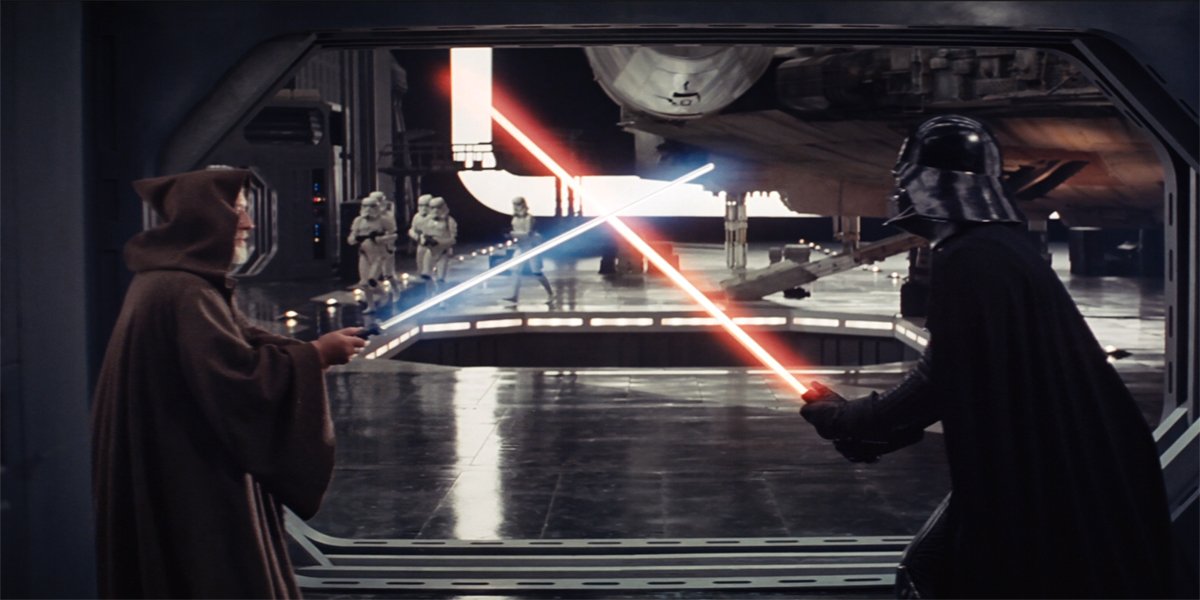Why George Lucas’ Star Wars Success Makes Francis Ford Coppola Feel ‘Sadness’

In May 1977, George Lucas' life changed forever. Prior to that month he was a director with two feature films under his belt – 1971's THX 1138 and 1973's American Graffiti – but the success of Star Wars was so incredibly massive that it basically became the sun in the universe of Lucas' future work: everything revolved around it. He worked on other projects, such as the Indiana Jones series and Willow, but between 1977 and the day he retired he never directed a movie that wasn't Star Wars related.
Most fans probably don't see an issue with this, as Star Wars is arguably George Lucas' greatest creation and it has brought happiness into the lives of a lot of people – but even recognizing that last part of the equation, legendary director Francis Ford Coppola feels a certain sadness that the franchise very much took over the filmmaker's career.
In the late 1960s, George Lucas and Francis Ford Coppola became very close, the two men meeting on the set of 1968's Finian's Rainbow and then one year later founding the studio American Zoetrope together. Coppola served as a producer on Lucas' first two directorial efforts, getting a first hand look at what the filmmaker could do while operating on a movie set, and so his feelings about his former protege's missed potential carry some significant weight. The Godfather director was asked for his feelings on Star Wars during a recent interview with Vulture, and he wasn't shy about expressing a mixed opinion:
Well, [George Lucas] created something that brought joy and happiness and pleasure — and even some wisdom — to so many people. Whatever benefits he got from it, he deserved and is welcome to. If I feel sadness, it is that he didn’t make the other movies he was going to make. George is truly a brilliant, talented person. Just look at American Graffiti and see all the innovation. We should’ve had more.
It's truly the ultimate version of the filmmaker's conundrum in Hollywood. While it's the instinct of any artist is to flex their creativity, finding real success in the movie industry means that a lot of people want you to start doing the same thing over and over again. Obviously George Lucas wasn't forced into the priorities he demonstrated, and clearly it led to him gaining tremendous wealth and a great deal of influence, so it's hard to argue against his choices working within the system and expanding on his most successful idea (plus he spent most of the 1980s working as a producer and supporting the visions of filmmakers like Jim Henson, Ron Howard, Paul Schrader, and Akira Kurosawa).
At the same time, it's not a challenge to understand Francis Ford Coppola's perspective and wonder what Lucas' career would have been like had he, for example, taken a more hands-off approach on The Empire Strikes Back and The Return Of The Jedi. With his mind given some distance from Star Wars, could he have directed an epic western? An intimate romantic comedy? A period drama? We'll never know.
It should additionally be noted that the opinions expressed by Francis Ford Coppola in the aforementioned interview apparently don't exactly differ extremely with what the director has said to George Lucas personally. Coppola was asked if he ever told Lucas directly about his thoughts regarding the filmmaker making smaller projects, and he explained,
Oh, yeah. He knows. I’m at the point where I can’t bring it up anymore. I do sort of think of him as a kid brother. We older people have to celebrate the success [of younger people]. I recognize that my daughter, Sofia, is, in a way, more successful than I am, and people are more interested in what she’s going to do next than [what I’m going to do next]. That’s how it should be.
While George Lucas has been retired in the years since the sale of Lucasfilm to the Walt Disney Company, Francis Ford Coppola has been active recently doing some rejuvenating work on his past features. Last year he edited a new version of Apocalypse Now that has been dubbed The Final Cut, and this month will see the new assembly of The Godfather: Part III, which is being called Mario Puzo's The Godfather, Coda: The Death of Michael Corleone. The movie is now available to rent and purchase from digital retailers.
Your Daily Blend of Entertainment News

Eric Eisenberg is the Assistant Managing Editor at CinemaBlend. After graduating Boston University and earning a bachelor’s degree in journalism, he took a part-time job as a staff writer for CinemaBlend, and after six months was offered the opportunity to move to Los Angeles and take on a newly created West Coast Editor position. Over a decade later, he's continuing to advance his interests and expertise. In addition to conducting filmmaker interviews and contributing to the news and feature content of the site, Eric also oversees the Movie Reviews section, writes the the weekend box office report (published Sundays), and is the site's resident Stephen King expert. He has two King-related columns.
